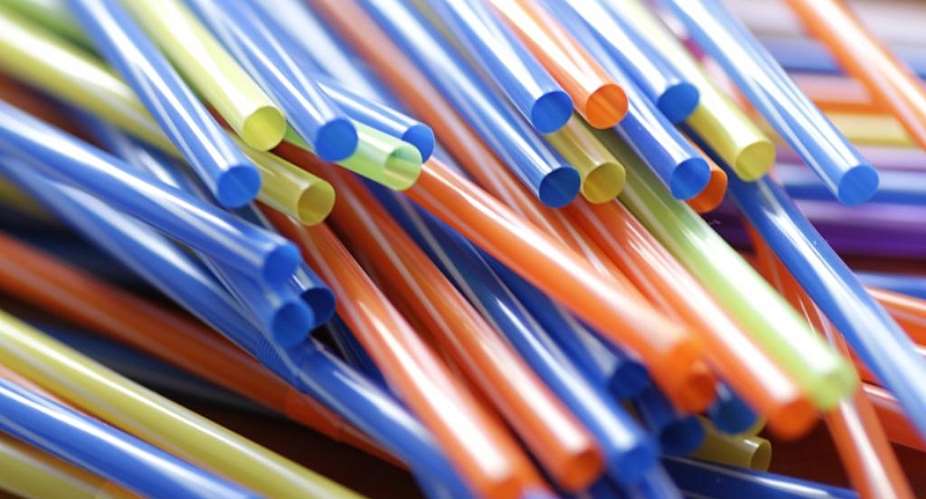Disposable plastic plates, cups, straws and other products were banned in France as of Wednesday as part of legislative measures coming into effect with the New Year. The ban applies to some of the most common polluting products but does not concern plastic packing material.
The ban aims to put an end to some of the most recognisable single-use products for anyone familiar with summer picnics – not to mention the littered parks, trails and beaches that can result.
Plastic plates, cups, cutlery, drinking straws all fall under the ban, as do cotton buds used for cleaning and hygiene.
“The most important thing is that the ban concerns emblematic products,” says Flore Berlingen, director of the campaign group Zero Waste France.
“It's not just symbolic, because these are also objects we're used to seeing littered all around: they're light, they're easy to carry pretty much anywhere, and we often see them in nature.”
Consumers may continue to see such products for a six-month period that has been allowed for stocks of previously manufactured products to deplete.
Packaging material still allowed
According to the decree announcing the ban, single-use plastic products are those “not conceived, created or marketed to be reused for the same use for which they are intended”.
That means the ban is wide ranging, but does not apply to cases when disposable plastics are used as packaging material.
“You won't find them anymore in a supermarket for example, in the sorts of things you'd buy for a picnic,” Berlingen says. “But if you're sold food or drink in plastic wrappers or cups, that's unfortunately still allowed.”
The ban is actually being applied somewhat late, because it follows a law that was promulgated in late 2018.
French lawmakers have just approved another waste reduction bill aiming to take things further and oblige restaurants, including fast-food chains, to offer only reusable cutlery for customers dining in the establishments.
Other environmental measures
As per tradition on the first day of January, the plastic ban was part of a swath of new laws and adjustments affecting taxation, purchasing power, the cost of living and health and social benefits.
Other environmental measures include a ban of some additives used to alter the appearance of food products.
The use of pesticides in the vicinity of residential buildings has also been banned in a move hailed by environmental groups and controversial among many farmers.
There are also extending financial bonuses and penalties with the purchase of vehicles, aiming to favour the purchase of vehicles with lower levels of carbon emissions and discouraging the more polluting models.
Changes to wages and taxes
In terms of finances, the minimum wage increased by 1.2 percent, representing a net monthly salary increase from 1,204 to 1,219 euros, or 15 euros more per month for the 2.3 million people who earn it.
The government also maintained a tax-exempt bonus of up to 1,000 euros intended to boost purchasing power of salaried workers, a measure introduced a year ago in response to the Yellow Vest movement. It was only available to participating employers and reserved for employees earning less than three times the minimum wage.
Also announced in response to the Yellow Vests, the year 2020 brings reduced rates for two income tax brackets, aiming to provide tax relief averaging at 350 euros for 12 million households and 180 euros for five million others.
In health care, the public health service is going to start full reimbursements of some eyeglasses and dentures, reduce reimbursements for homeopathic remedies and provide full coverage of contraceptives for minors.
Other changes include a 10 percent increase in the cost of the most common type of postage stamp, slight increases in banking fees and a 0.9 percent reduction in gas bills.





 We’ll protect state wealth from opaque deals – Prof Jane Naana
We’ll protect state wealth from opaque deals – Prof Jane Naana
 Mauritania president says running for second term in June polls
Mauritania president says running for second term in June polls
 I won't ever say I was a mere driver’s mate' — Prof. Opoku-Agyemang
I won't ever say I was a mere driver’s mate' — Prof. Opoku-Agyemang
 2024 polls: 'EC struggling to defend credibility'— Prof. Opoku-Agyemang
2024 polls: 'EC struggling to defend credibility'— Prof. Opoku-Agyemang
 Akufo-Addo gov't's 'greed, unbridled arrogance, unrestrained impunity, sheer dis...
Akufo-Addo gov't's 'greed, unbridled arrogance, unrestrained impunity, sheer dis...
 Election 2024: Ghana needs an urgent reset, a leadership that is inspiring – Ma...
Election 2024: Ghana needs an urgent reset, a leadership that is inspiring – Ma...
 Partner NDC to rollout a future of limitless prospects – Prof Jane Naana Opoku-A...
Partner NDC to rollout a future of limitless prospects – Prof Jane Naana Opoku-A...
 NPP will remain in gov’t till Jesus comes — Diana Asamoah
NPP will remain in gov’t till Jesus comes — Diana Asamoah
 Sunyani Technical University demands apology from former SRC president over sex-...
Sunyani Technical University demands apology from former SRC president over sex-...
 'Dumsor' was resolved by Mahama but ‘incompetent' Akufo-Addo has destroyed the g...
'Dumsor' was resolved by Mahama but ‘incompetent' Akufo-Addo has destroyed the g...
